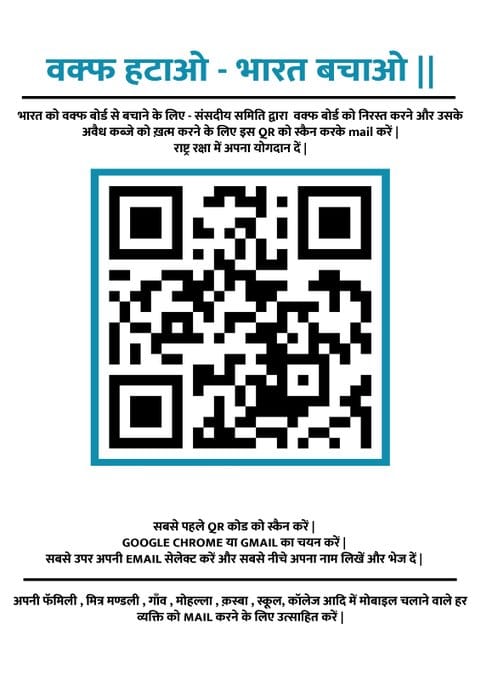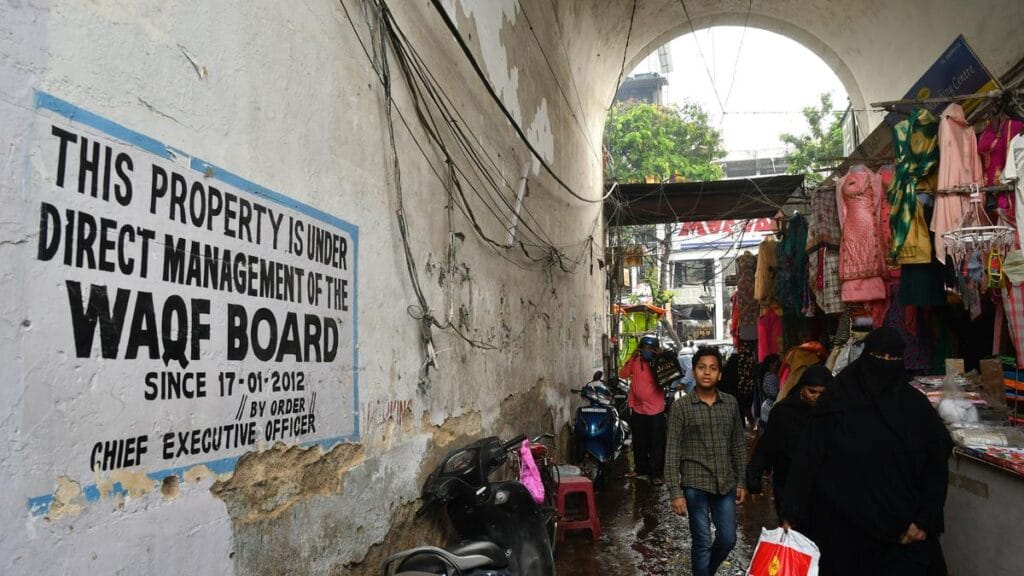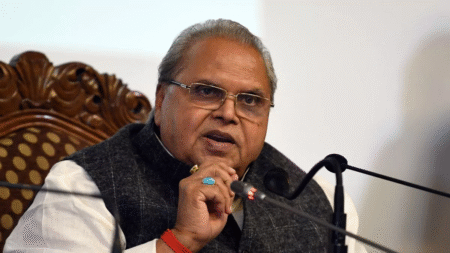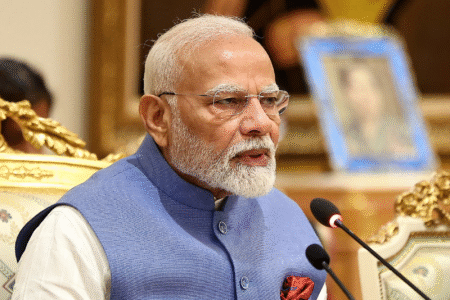Pre-Drafted Messages Circulated via Social Media
With the deadline for public feedback on the Waqf Amendment Bill approaching, both Hindu and Muslim groups have ramped up efforts to encourage people to share their views with the Joint Parliamentary Committee (JPC). The Bill, tabled in Parliament on July 28, has sparked widespread debate, and religious organizations on both sides are using social media, WhatsApp, and small gatherings to mobilize citizens to participate.
Table of Contents
Pre-Drafted Messages Circulated via Social Media

Both the Vishwa Hindu Parishad (VHP) and the All India Muslim Personal Law Board (AIMPLB) have distributed pre-drafted messages through platforms like WhatsApp and Google Forms, urging followers to send their opinions to the JPC. The Waqf (Amendment) Bill, which proposes several changes to the management of Waqf properties, has become a focal point of controversy, with both communities expressing strong opinions.
Muslim organizations, led by the AIMPLB, are leveraging Friday prayers and online campaigns, including QR codes that allow quick access to pre-drafted objection messages. In contrast, Hindu groups have used gatherings during Ganesh Puja, temple events, and Resident Welfare Associations to spread the message. A core issue for many Hindus has been the alleged misuse of Waqf powers, such as the case of a Hindu temple in Tamil Nadu being claimed as Waqf property.
AIMPLB’s Push for Mass Objections on Waqf Amendment Bill
The AIMPLB has been at the forefront of the campaign to reject the Waqf Amendment Bill, stating that it undermines the religious and legal sanctity of Waqf properties. Maulana Khalid Rasheed Firangi Mahali, a prominent member of AIMPLB, revealed that over 82.7 million emails have been sent to the JPC through their platform, and they expect this number to cross 100 million by the September 13 deadline.
In the AIMPLB’s pre-drafted letter, the Bill is criticized for stripping the authority of mutawallis (caretakers) and potentially allowing Waqf properties to be reclassified, which they argue compromises religious freedom and constitutional rights. The organization claims that if corruption and mismanagement are concerns, these can be addressed through stricter penalties rather than a wholesale amendment of the law.
VHP and Hindu Groups Back the Bill
On the other side, Hindu groups, particularly the VHP, are advocating for reforms in the Waqf(Amendment Bill. They cite instances like the Tiruchendurai temple case in Tamil Nadu, where a 1,500-year-old Hindu temple was allegedly classified as Waqf property, to highlight the need for changes in the system.
Also Read : Why India Still Lags Behind in Olympic Medals Compared to China and USA?
According to VHP spokesperson Vinod Bansal, their campaign has used social media and in-person gatherings to explain the importance of the amendments. They argue that the Bill seeks to rectify the unchecked power of Waqf Boards, especially regarding property surveys and claims.
The pre-drafted letters circulating among Hindu groups stress the need for civil courts to have a say in Waqf disputes and criticize past political decisions that allegedly granted too much power to Waqf Boards. These letters specifically target policies implemented by previous governments, notably under former Prime Minister Manmohan Singh, for giving Waqf Boards what they call “arbitrary powers.”
Waqf Amendment Bill: Key Provisions Under Debate
The Waqf (Amendment) Bill, introduced by the Central government, proposes significant changes, including:
- Inclusion of non-Muslims and Muslim women in Waqf Boards.
- Restricting the power of Waqf Boards to declare properties as Waqf without due process.
- Enhanced checks on the mismanagement of Waqf properties.
Muslim groups argue that the Bill threatens the religious nature of Waqf properties, while Hindu organizations view it as a necessary reform to prevent misuse.
Public Participation in Focus
अगर आप भी WAQF संसोधन बिल का समर्थन करना चाहते है तो इस विडीयो को ध्यान से देखिए#BanWAQF pic.twitter.com/kPdkXFWuzg
— Kreately.in (@KreatelyMedia) September 12, 2024
Both Hindu and Muslim groups have made strong appeals to the public to submit their views. On social media platform X, controversial religious leader Zakir Naik also called on Indian citizens to use a pre-drafted letter to object to the Bill, which prompted a response from Minority Affairs Minister Kiren Rijiju. Rijiju emphasized that false propaganda could mislead the public, stressing that India’s democracy allows for open dialogue, but urged people not to fall for misinformation.
Conclusion: The Final Push
As the September 13 deadline nears, the campaigns from both sides continue to intensify. Whether the Waqf (Amendment) Bill passes or undergoes changes based on public feedback remains to be seen. What is clear is that religious groups on both sides are determined to make their voices heard.
External Links:
Vishva Hindu Parishad – Official Website (vhp.org)












